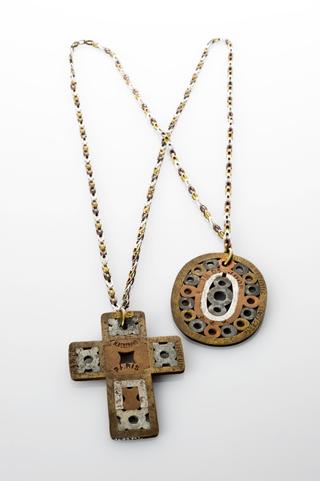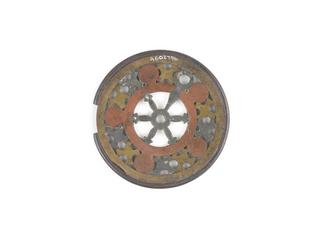
Magneto-electric machine
- Made:
- 1854-1890 in England and United States
Davis magneto-electric machine from later 19th century, hand-cranked, English or American make, 1854-1890
Widely available, these portable devices were used to generate therapeutic electricity in the home or by travelling practitioners. Turning the handles produced an electric current. Damp sponges in the brass cylinders prevented a prickling sensation on the skin. Users and makers claimed the devices could relieve pain and cure almost everything, including cancer and heart disease.
While these types of machines have survived in fairly large numbers, the green printed instructions are unusual. Ari Davis (1811-1855) was a craftsman who received a patent in 1854 for this type of magneto-electric machine. Davis sold the rights to the patent to Walter Kidder, a physician in Lowell, Massachusetts, allegedly for $4000. Their device was often advertised as Davis and Kidder’s patent magneto-electro machine. Kidder sold the patent to W H Burlap in 1856 but many also copied the design.
This example is stamped with the name W Aronsberg
Details
- Category:
- Therapeutics
- Collection:
- Sir Henry Wellcome's Museum Collection
- Object Number:
- A630986
- Materials:
- box, mahogany, magnets (3), iron, pulley mechanism, brass and crank & electrodes, brass
- Measurements:
-
overall (closed): 108 mm x 287 mm x 117 mm, 1.86 kg
- type:
- electrotherapy equipment
- credit:
- Loan, Wellcome Trust



